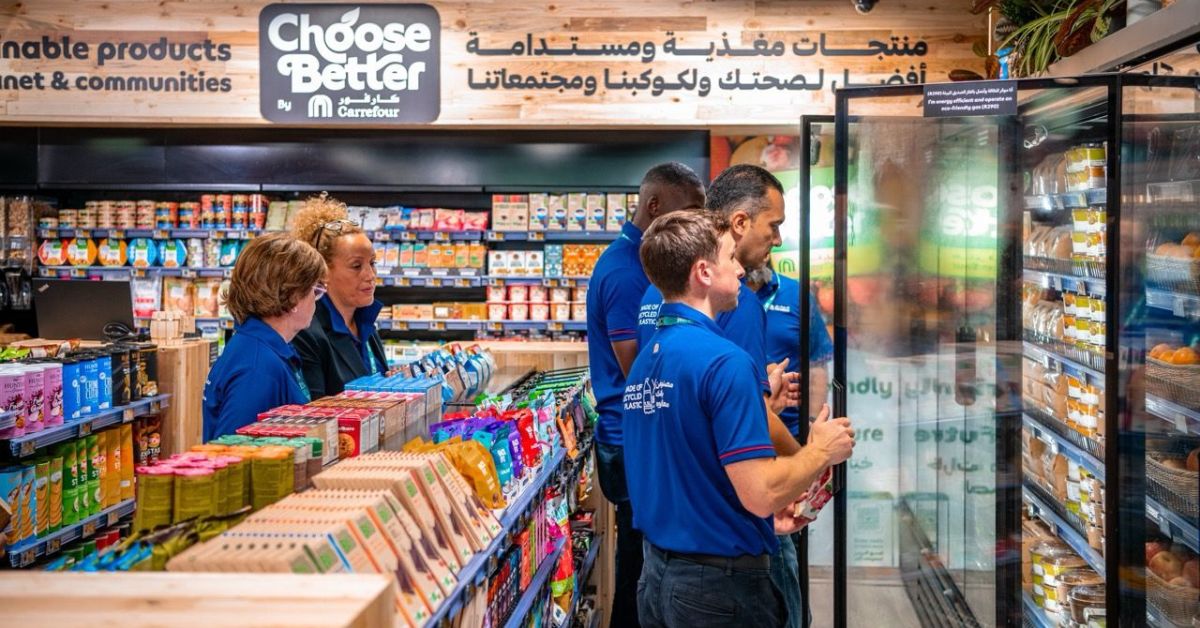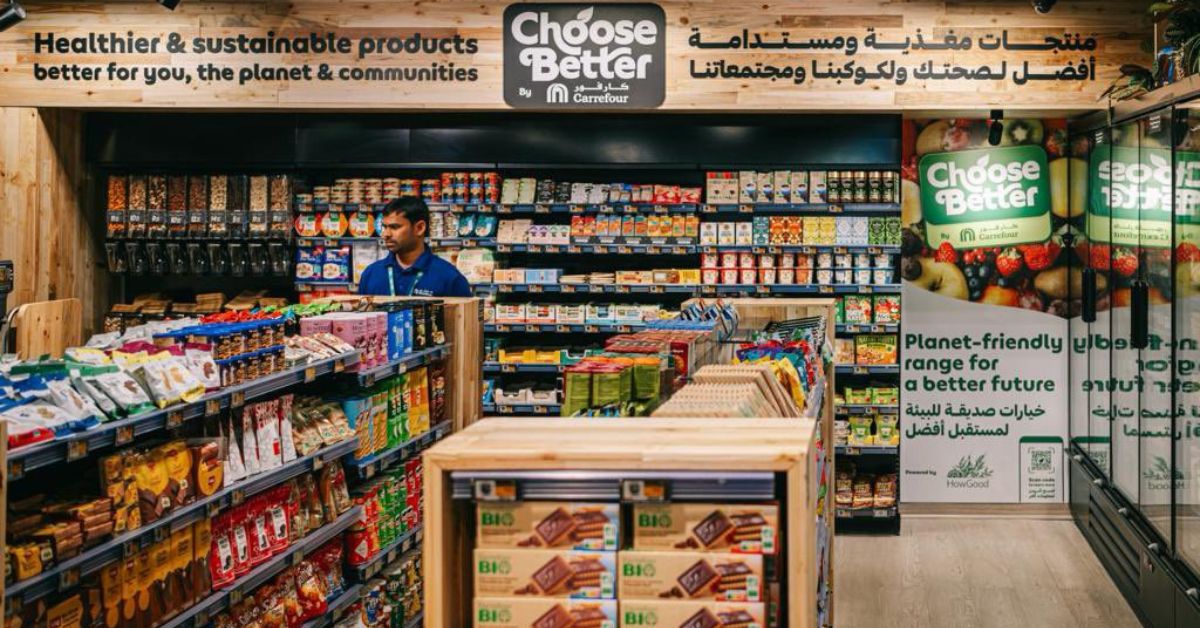DUBAI — Businesses across GCC are constantly seeking innovative strategies to attract and retain customers.
Customer Loyalty Programs (CLPs) have long been a cornerstone for businesses aiming to retain and reward loyal customers. In the fast-paced market of the Gulf Cooperation Council (GCC) countries, where competition is fierce, these programs have taken on new forms, mainly through Card Linked Offers (CLOs).
Firms utilize Customer Loyalty Programs (CLPs) to reward and retain loyal consumers. Most customer loyalty programs (CLPs) offer discounts, special offers, or incentives to encourage customers to sign up for their programs. Customer loyalty programs known as Card Linked Offers (CLOs) allow users to earn discounts or incentives by simply linking their payment card to the program.
Customers can enjoy automatically tailored promotions or rewards whenever they make qualified purchases with the associated card. Consumers have more engaging and rewarding purchasing experiences with CLO programs because of their simplicity, which allows users to enjoy benefits without additional loyalty cards or cumbersome redemption processes.
“With the competitive market landscape in the GCC, well-executed CLPs not only enhance customer retention but also serve as powerful tools for businesses to differentiate themselves, foster brand advocacy, and adapt to the unique preferences of the local consumer base,” says Dan Lloyd, Chief Financial Officer at Mimojo.
Evolution and Significance of CLOs in the GCC
The evolution of CLOs has been significant in recent years, according to Lloyd. There has been a shift from traditional apps and coupon-driven rewards toward card linking and CLOs. The demand for better user experiences and advancements in technology drives this transition.
CLOs now play a transformative role, offering a seamless and improved experience for both merchants and customers. In the GCC’s dynamic market, well-executed CLOs enhance customer retention and serve as powerful tools for businesses to differentiate themselves and adapt to local consumer preferences.
Implementing effective CLOs offers several critical benefits for brands, Lloyd notes. Firstly, they foster increased customer loyalty by seamlessly delivering personalized discounts and rewards.
Secondly, CLOs provide valuable data insights into consumer spending behaviors, enabling brands to refine their marketing strategies.
Additionally, removing transaction validation dependencies on staff significantly improves efficiency and enhances the customer experience, building positive brand associations and driving engagement.
Leveraging Technology and Integration with Mobile Apps
Technology, particularly data analytics, is crucial in tailoring Card Linked Offers (CLOs) to individual customer preferences.
By analyzing customer data, brands can understand shopping patterns, preferences, and behavior, allowing them to personalize CLOs with relevant discounts and incentives.
In an interview with TRENDS, Lloyd said, “This not only enhances the customer experience by providing offers aligned with individual interests but also allows brands to build stronger connections and foster loyalty in a friendly and personalized manner. In essence, leveraging data analytics empowers brands to deliver a more targeted and engaging CLO experience for each customer.”
Mobile applications also play a vital role in integrating CLOs, providing a user-friendly platform for customers to access and redeem personalized deals. Through intuitive interfaces, these apps offer a seamless experience, allowing users to link their payment cards and receive tailored offers effortlessly. This integration simplifies the redemption process and enhances the overall user experience by delivering timely, location-based promotions and fostering positive brand interactions.
Enhancing Security and Transparency with Blockchain
Blockchain technology plays a pivotal role in improving the security and transparency of CLOs.
Its decentralized and tamper-resistant ledgers ensure the security of customer data, transactions, and reward distributions, establishing trust and accountability, according to Lloyd.
Blockchain provides brands with an auditable record of transactions, enhancing security and contributing to a more secure and transparent environment for CLO implementations.
Cashback Programs for Retailers in the GCC
Cashback programs offer customers a percentage of their purchase back as a cash reward. Unlike traditional loyalty rewards, cashback provides a tangible and immediate benefit, aligning with consumer preferences for practical and direct value. This approach simplifies the reward process and resonates well with GCC consumers, creating a more engaging and customer-centric loyalty strategy.
Implementing cashback programs within CLOs is supported by various technologies, including mobile applications, data analytics, and secure payment gateways. These technologies enhance the overall user experience, making cashback programs more engaging and customer-friendly.
“Retailers benefit from increased customer retention, higher spending, and valuable data insights into consumer behavior, contributing to a more engaging and profitable relationship. This approach not only simplifies the reward process but also aligns with the preferences of both parties, creating a win-win scenario in a friendly and approachable manner,” mentioned Lloyd.
Overcoming Challenges
Brands must address challenges such as compatibility with payment systems, privacy concerns, and user education when implementing integrations for cashback programs within CLOs.
Transparent communication and education can help overcome adoption hurdles and ensure a positive integration experience, Lloyd said.
Market Trends
New market trends have transformed cashback schemes and improved their effectiveness.
Cashback programs elevate customer loyalty to the next level with personalized offers based on their preferences. Retailers leverage data analytics and machine learning algorithms to study consumer behavior and purchase trends, providing personalized cashback and boosting client loyalty with targeted rewards.
Moreover, the rise of mobile payment solutions and digital wallets in the GCC, and their integration with cashback programs, simplify redemption and enhance the user experience. Cashback credits can now be deposited directly into digital wallets, offering convenience and flexibility to tech-savvy regional consumers.
Redemption options beyond traditional channels are becoming increasingly popular, with customers now able to redeem cashback incentives such as gift cards, vouchers, charitable donations, and bank account credits. This flexibility gives clients the power to choose their preferred redemption method, ultimately increasing the perceived value of the cashback program.

Additionally, retailers are incorporating gamification into cashback programs to increase consumer engagement by creating a sense of excitement and competition. Reward milestones, challenges, and leaderboards incentivize users to participate more actively in the program and win more prizes, making the experience more engaging and motivating.
At the same time, GCC cashback schemes are now heavily focused on partnerships with retailers, banks, e-commerce platforms, and lifestyle companies, allowing customers to receive cashback benefits from both their purchases and partner brand transactions. This coalition program strategy enhances the cashback program’s value and strengthens customer relationships.
As environmental and social concerns grow, sustainability-focused initiatives are in high demand in the GCC. Retailers offer eco-friendly cashback rewards for eco-conscious purchases and environmental donations, attracting socially conscious customers and differentiating their brand by integrating reward programs with sustainability goals.
As cashback programs expand, ensuring the security of consumer data and transactions is crucial. Retailers use encryption, tokenization, and biometric authentication to protect sensitive data and prevent fraud. Addressing security concerns fosters customer trust and builds long-term connections.
Customer loyalty programs and card-linked offers have become integral components of customer engagement strategies in the GCC. By leveraging technology, data analytics, and innovative approaches such as cashback programs, brands can enhance customer relationships, drive loyalty, and stay ahead in a competitive market landscape.








